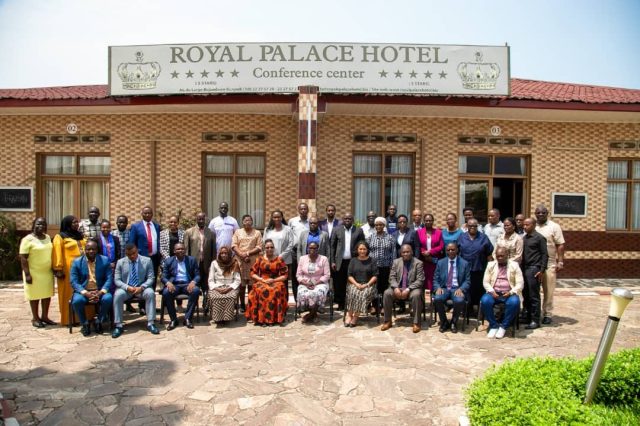BUJUMBURA (Burundi), Jan 25 (NNN-KBC) — The East African Community (EAC) Partner States have approved the EAC Policy and Legal frameworks governing labour migration and the outcome of the national and regional consultations.
The overall aims of the policy are to advocate for the protection of migrant workers; strengthen labour migration governance and maximise the benefits accruing from labour migration.
The approval took place during the regional meeting of Experts in Bujumbura, Burundi where the Directors of Labour and Employment from the EAC Partner States converged.
The Policy whose implementation Plan spans from 2025-2030, has ten (10) key Priority areas namely: Labour Migration Governance; Harmonisation of Labour Migration Policies; Protection and Empowerment of Migrant Workers; Access to Social Protection and Social Security Benefits; Mutual recognition of Academic and Professional Qualifications.
Other priorities area are ; Recognition of Skills Obtained through Informal Training; Promotion of Fair and Ethical Recruitment Practices; Remittances by Migrant Workers; Exchange of Young Workers; and Labour Market Information Systems.
The policy recognises that Partner States have also put in place robust efforts to recognize, certify, and qualify skills acquired through experiential learning. However, a notable gap remains at the EAC level where there is currently no specific mechanism for the recognition of such skills.
The gap underlines the urgent need to integrate skill recognition components into the ongoing development of frameworks across labour, education, vocational training, and skills development sectors. The policy also takes cognisance of the fact that remittances by migrant workers is not explicitly addressed in the EAC legal and regulatory provisions, and thus, the need to develop appropriate mechanisms for migrant workers engagement in the development of the Community, becomes critical.
The current information on remittances from the World Bank indicates that, Partner States rose from 5,495,480,000 in 2017 to 9,399,804,228 in 2022 (World Bank Data, 2022). The region will therefore, need to develop mechanisms to ease the cost pf transfer of remittances to boost EAC Partner States economies.
Speaking during the meeting on behalf of the EAC Secretary General Dr. Peter Mathuki, Director of Social Sectors at the EAC Secretariat Dr. Irene Isaka commended the Directors and Experts for timely implementing the directive of the 44th Council of Ministers which called for the finalisation of the labour Migration policy and report to the 33rd Sectoral Council of Ministers responsible for EAC Affairs and Planning.
She further said that the idea to develop the policy was proposed by Labour Migration Experts in 2013.
After wide consultations, and with the support from the AUC Joint Labour Migration Program, the policy was developed and presented to the Forum of Ministers of Labour and Employment in October 2021. After the endorsement of the policy by the Ministers of Labour and Employment, the Policy was then, updated and consulted upon at regional level and social partners at sub- regional level.
The Director informed the Directors of Labour and employment that the policy was not a legal instrument with a legal binding force, but it would serve as a guiding document to Partner States with similar policies to align them with them to regional standard, or Partner States with no policy would customise the regional labour migration policy.
The policy would also assist in the review of Partner States policies that had been undergoing implementation.
The four-day regional Experts meeting from 17th – 20th January 2024, was attended by the Directors responsible for Labour and Employment and Experts drawn from the Ministries responsible for EAC Affairs, Labour, Foreign Affairs, Finance, Internal Affairs (Directorates of Immigration), Constitution and Legal Affairs, Prime Minister’s Office and National Treasury and representative from the International Organization for Migration and African Union Commission – Joint Labour Migration Program. — NNN-KBC





